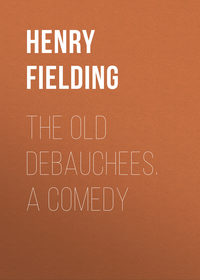
A Journey from This World to the Next
“My friend told me he thought my question admitted of no manner of doubt or debate; that common prudence absolutely required my immediate departure; adding, that if the same good luck had happened to him he would have been already on his journey; ‘for,’ continued he, ‘a man who knows the world so well as you, would be inexcusable to give persons such an opportunity of cheating you, who, you must be assured, will be too well inclined; and as for employing a notary, remember that excellent maxim, Ne facias per alium, quod fieri potest per te. I own the badness of the season and your very late recovery are unlucky circumstances; but a wise man must get over difficulties when necessity obliges him to encounter them.’
“I was immediately determined by this opinion. The duty of a wise man made an irresistible impression, and I took the necessity for granted without examination. I accordingly set forward the next morning; very tempestuous weather soon overtook me; I had not traveled three days before I relapsed into my fever, and died.
“I was now as cruelly disappointed by Minos as I had formerly been happily so. I advanced with the utmost confidence to the gate, and really imagined I should have been admitted by the wisdom of my countenance, even without any questions asked: but this was not my case; and, to my great surprise, Minos, with a menacing voice, called out to me, ‘You Mr. there, with the grave countenance, whither so fast, pray? Will you please, before you move any farther forwards, to give me a short account of your transactions below?’ I then began, and recounted to him my whole history, still expecting at the end of every period that the gate would be ordered to fly open; but I was obliged to go quite through with it, and then Minos after some little consideration spoke to me as follows: —
“‘You, Mr. Wiseman, stand forth if you please. Believe me, sir, a trip back again to earth will be one of the wisest steps you ever took, and really more to the honor of your wisdom than any you have hitherto taken. On the other side, nothing could be simpler than to endeavor at Elysium; for who but a fool would carry a commodity, which is of such infinite value in one place, into another where it is of none? But, without attempting to offend your gravity with a jest, you must return to the place from whence you came, for Elysium was never designed for those who are too wise to be happy.’
“This sentence confounded me greatly, especially as it seemed to threaten me with carrying my wisdom back again to earth. I told the judge, though he would not admit me at the gate, I hoped I had committed no crime while alive which merited my being wise any longer. He answered me, I must take my chance as to that matter, and immediately we turned our backs to each other.”
CHAPTER XVII
Julian enters into the person of a king.
“I was now born at Oviedo in Spain. My father’s name was Veremond, and I was adopted by my uncle king Alphonso the chaste.
“I don’t recollect in all the pilgrimages I have made on earth that I ever passed a more miserable infancy than now; being under the utmost confinement and restraint, and surrounded with physicians who were ever dosing me, and tutors who were continually plaguing me with their instructions; even those hours of leisure which my inclination would have spent in play were allotted to tedious pomp and ceremony, which, at an age wherein I had no ambition to enjoy the servility of courtiers, enslaved me more than it could the meanest of them. However, as I advanced towards manhood, my condition made me some amends; for the most beautiful women of their own accord threw out lures for me, and I had the happiness, which no man in an inferior degree can arrive at, of enjoying the most delicious creatures, without the previous and tiresome ceremonies of courtship, unless with the most simple, young and unexperienced. As for the court ladies, they regarded me rather as men do the most lovely of the other sex; and, though they outwardly retained some appearance of modesty, they in reality rather considered themselves as receiving than conferring favors.
“Another happiness I enjoyed was in conferring favors of another sort; for, as I was extremely good-natured and generous, so I had daily opportunities of satisfying those passions. Besides my own princely allowance, which was very bountiful, and with which I did many liberal and good actions, I recommended numberless persons of merit in distress to the king’s notice, most of whom were provided for. Indeed, had I sufficiently known my blessed situation at this time, I should have grieved at nothing more than the death of Alphonso, by which the burden of government devolved upon me; but, so blindly fond is ambition, and such charms doth it fancy in the power and pomp and splendor of a crown, that, though I vehemently loved that king, and had the greatest obligations to him, the thoughts of succeeding him obliterated my regret at his loss, and the wish for my approaching coronation dried my eyes at his funeral.
“But my fondness for the name of king did not make me forgetful of those over whom I was to reign. I considered them in the light in which a tender father regards his children, as persons whose wellbeing God had intrusted to my care; and again, in that in which a prudent lord respects his tenants, as those on whose wealth and grandeur he is to build his own. Both these considerations inspired me with the greatest care for their welfare, and their good was my first and ultimate concern.
“The usurper Mauregas had impiously obliged himself and his successors to pay to the Moors every year an infamous tribute of an hundred young virgins: from this cruel and scandalous imposition I resolved to relieve my country. Accordingly, when their emperor Abderames the second had the audaciousness to make this demand of me, instead of complying with it I ordered his ambassadors to be driven away with all imaginable ignominy, and would have condemned them to death, could I have done it without a manifest violation of the law of nations.
“I now raised an immense army; at the levying of which I made a speech from my throne, acquainting my subjects with the necessity and the reasons of the war in which I was going to engage: which I convinced them I had undertaken for their ease and safety, and not for satisfying any wanton ambition, or revenging any private pique of my own. They all declared unanimously that they would venture their lives and everything dear to them in my defense, and in the support of the honor of my crown. Accordingly, my levies were instantly complete, sufficient numbers being only left to till the land; churchmen, even bishops themselves, enlisting themselves under my banners.
“The armies met at Alvelda, where we were discomfited with immense loss, and nothing but the lucky intervention of the night could have saved our whole army.
“I retreated to the summit of a hill, where I abandoned myself to the highest agonies of grief, not so much for the danger in which I then saw my crown, as for the loss of those miserable wretches who had exposed their lives at my command. I could not then avoid this reflection – that, if the deaths of these people in a war undertaken absolutely for their protection could give me such concern, what horror must I have felt if, like princes greedy of dominion, I had sacrificed such numbers to my own pride, vanity, and ridiculous lust of power.
“After having vented my sorrows for some time in this manner, I began to consider by what means I might possibly endeavor to retrieve this misfortune; when, reflecting on the great number of priests I had in my army, and on the prodigious force of superstition, a thought luckily suggested itself to me, to counterfeit that St. James had appeared to me in a vision, and had promised me the victory. While I was ruminating on this the bishop of Najara came opportunely to me. As I did not intend to communicate the secret to him, I took another method, and, instead of answering anything the bishop said to me, I pretended to talk to St. James, as if he had been really present; till at length, after having spoke those things which I thought sufficient, and thanked the saint aloud for his promise of the victory, I turned about to the bishop, and, embracing him with a pleased countenance, protested I did not know he was present; and then, informing him of this supposed vision, I asked him if he had not himself seen the saint? He answered me he had; and afterwards proceeded to assure me that this appearance of St. James was entirely owing to his prayers; for that he was his tutelar saint. He added he had a vision of him a few hours before, when he promised him a victory over the infidels, and acquainted him at the same time of the vacancy of the see of Toledo. Now, this news being really true, though it had happened so lately that I had not heard of it (nor, indeed, was it well possible I should, considering the great distance of the way), when I was afterwards acquainted with it, a little staggered me, though far from being superstitious; till being informed that the bishop had lost three horses on a late expedition, I was satisfied.
“The next morning, the bishop, at my desire, mounted the rostrum, and trumpeted forth this vision so effectually, which he said he had that evening twice seen with his own eyes, that a spirit began to be infused through the whole army which rendered them superior to almost any force: the bishop insisted that the least doubt of success was giving the lie to the saint, and a damnable sin, and he took upon him in his name to promise them victory.
“The army being drawn out, I soon experienced the effect of enthusiasm, for, having contrived another stratagem9 to strengthen what the bishop had said, the soldiers fought more like furies than men. My stratagem was this: I had about me a dexterous fellow, who had been formerly a pimp in my amours. Him I dressed up in a strange antic dress, with a pair of white colors in his right hand, a red cross in his left, and having disguised him so that no one could know him, I placed him on a white horse, and ordered him to ride to the head of the army, and cry out, ‘Follow St. James!’ These words were reiterated by all the troops, who attacked the enemy with such intrepidity, that, notwithstanding our inferiority of numbers, we soon obtained a complete victory.
“The bishop was come up by the time that the enemy was routed, and, acquainting us that he had met St. James by the way, and that he had informed him of what had passed, he added that he had express orders from the saint to receive a considerable sum for his use, and that a certain tax on corn and wine should be settled on his church for ever; and lastly, that a horseman’s pay should be allowed for the future to the saint himself, of which he and his successors were appointed receivers. The army received these demands with such acclamations that I was obliged to comply with them, as I could by no means discover the imposition, nor do I believe I should have gained any credit if I had.
“I had now done with the saint, but the bishop had not; for about a week afterwards lights were seen in a wood near where the battle was fought; and in a short time afterwards they discovered his tomb at the same place. Upon this the bishop made me a visit, and forced me to go thither, to build a church to him, and largely endow it. In a word, the good man so plagued me with miracle after miracle, that I was forced to make interest with the pope to convey him to Toledo, to get rid of him.
“But to proceed to other matters. – There was an inferior officer, who had behaved very bravely in the battle against the Moors, and had received several wounds, who solicited me for preferment; which I was about to confer on him, when one of my ministers came to me in a fright, and told me that he had promised the post I designed for this man to the son of count Alderedo; and that the count, who was a powerful person, would be greatly disobliged at the refusal, as he had sent for his son from school to take possession of it. I was obliged to agree with my minister’s reasons, and at the same time recommended the wounded soldier to be preferred by him, which he faithfully promised he would; but I met the poor wretch since in Elysium, who informed me he was afterwards starved to death.
“None who hath not been himself a prince, nor any prince till his death, can conceive the impositions daily put on them by their favorites and ministers; so that princes are often blamed for the faults of others. The count of Saldagne had been long confined in prison, when his son, D. Bernard del Carpio, who had performed the greatest actions against the Moors, entreated me, as a reward for his service, to grant him his father’s liberty. The old man’s punishment had been so tedious, and the services of the young one so singularly eminent, that I was very inclinable to grant the request; but my ministers strongly opposed it; they told me my glory demanded revenge for the dishonor offered to my family; that so positive a demand carried with it rather the air of menace than entreaty; that the vain detail of his services, and the recompense due to them, was an injurious reproach; that to grant what had been so haughtily demanded would argue in the monarch both weakness and timidity; in a word, that to remit the punishment inflicted by my predecessors would be to condemn their judgment. Lastly, one told me in a whisper, ‘His whole family are enemies to your house.’ By these means the ministers prevailed. The young lord took the refusal so ill, that he retired from court, and abandoned himself to despair, whilst the old one languished in prison. By which means, as I have since discovered, I lost the use of two of my best subjects.
“To confess the truth, I had, by means of my ministers, conceived a very unjust opinion of my whole people, whom I fancied to be daily conspiring against me, and to entertain the most disloyal thoughts, when, in reality (as I have known since my death), they held me in universal respect and esteem. This is a trick, I believe, too often played with sovereigns, who, by such means, are prevented from that open intercourse with their subjects which, as it would greatly endear the person of the prince to the people, so might it often prove dangerous to a minister who was consulting his own interest only at the expense of both. I believe I have now recounted to you the most material passages of my life; for I assure you there are some incidents in the lives of kings not extremely worth relating. Everything which passes in their minds and families is not attended with the splendor which surrounds their throne – indeed, there are some hours wherein the naked king and the naked cobbler can scarce be distinguished from each other.
“Had it not been, however, for my ingratitude to Bernard del Carpio, I believe this would have been my last pilgrimage on earth; for, as to the story of St. James, I thought Minos would have burst his sides at it; but he was so displeased with me on the other account, that, with a frown, he cried out, ‘Get thee back again, king.’ Nor would he suffer me to say another word.”
CHAPTER XVIII
Julian passes into a fool.
“The next visit I made to the world was performed in France, where I was born in the court of Lewis III, and had afterwards the honor to be preferred to be fool to the prince, who was surnamed Charles the Simple. But, in reality, I know not whether I might so properly be said to have acted the fool in his court as to have made fools of all others in it. Certain it is, I was very far from being what is generally understood by that word, being a most cunning, designing, arch knave. I knew very well the folly of my master, and of many others, and how to make my advantage of this knowledge.
“I was as dear to Charles the Simple as the player Paris was to Domitian, and, like him, bestowed all manner of offices and honors on whom I pleased. This drew me a great number of followers among the courtiers, who really mistook me for a fool, and yet flattered my understanding. There was particularly in the court a fellow who had neither honor, honesty, sense, wit, courage, beauty, nor indeed any one good quality, either of mind or body, to recommend him; but was at the same time, perhaps, as cunning a monster as ever lived. This gentleman took it into his head to list under my banner, and pursued me so very assiduously with flattery, constantly reminding me of my good sense, that I grew immoderately fond of him; for though flattery is not most judiciously applied to qualities which the persons flattered possess, yet as, notwithstanding my being well assured of my own parts, I passed in the whole court for a fool, this flattery was a very sweet morsel to me. I therefore got this fellow preferred to a bishopric, but I lost my flatterer by it; for he never afterwards said a civil thing to me.
“I never balked my imagination for the grossness of the reflection on the character of the greatest noble – nay, even the king himself; of which I will give you a very bold instance. One day his simple majesty told me he believed I had so much power that his people looked on me as the king, and himself as my fool.
“At this I pretended to be angry, as with an affront. ‘Why, how now?’ says the king; ‘are you ashamed of being a king?’ ‘No, sir,’ says I, ‘but I am devilishly ashamed of my fool.’
“Herbert, earl of Vermandois, had by my means been restored to the favor of the Simple (for so I used always to call Charles). He afterwards prevailed with the king to take the city of Arras from earl Baldwin, by which means, Herbert, in exchange for this city, had Peronne restored to him by count Altmar. Baldwin came to court in order to procure the restoration of his city; but, either through pride or ignorance, neglected to apply to me. As I met him at court during his solicitation, I told him he did not apply the right way; he answered roughly he should not ask a fool’s advice. I replied I did not wonder at his prejudice, since he had miscarried already by following a fool’s advice; but I told him there were fools who had more interest than that he had brought with him to court. He answered me surlily he had no fool with him, for that he traveled alone. ‘Ay, my lord,’ says I, ‘I often travel alone, and yet they will have it I always carry a fool with me.’ This raised a laugh among the by-standers, on which he gave me a blow. I immediately complained of this usage to the Simple, who dismissed the earl from court with very hard words, instead of granting him the favor he solicited.
“I give you these rather as a specimen of my interest and impudence than of my wit – indeed, my jests were commonly more admired than they ought to be; for perhaps I was not in reality much more a wit than a fool. But, with the latitude of unbounded scurrility, it is easy enough to attain the character of wit, especially in a court, where, as all persons hate and envy one another heartily, and are at the same time obliged by the constrained behavior of civility to profess the greatest liking, so it is, and must be, wonderfully pleasant to them to see the follies of their acquaintance exposed by a third person. Besides, the opinion of the court is as uniform as the fashion, and is always guided by the will of the prince or of the favorite. I doubt not that Caligula’s horse was universally held in his court to be a good and able consul. In the same manner was I universally acknowledged to be the wittiest fool in the world. Every word I said raised laughter, and was held to be a jest, especially by the ladies, who sometimes laughed before I had discovered my sentiment, and often repeated that as a jest which I did not even intend as one.
“I was as severe on the ladies as on the men, and with the same impunity; but this at last cost me dear: for once having joked on the beauty of a lady whose name was Adelaide, a favorite of the Simple’s, she pretended to smile and be pleased at my wit with the rest of the company; but in reality she highly resented it, and endeavored to undermine me with the king. In which she so greatly succeeded (for what cannot a favorite woman do with one who deserves the surname of Simple?) that the king grew every day more reserved to me, and when I attempted any freedom gave me such marks of his displeasure, that the courtiers who have all hawks’ eyes at a slight from the sovereign, soon discerned it: and indeed, had I been blind enough not to have discovered that I had lost ground in the Simple’s favor by his own change in his carriage towards me, I must have found it, nay even felt it, in the behavior of the courtiers: for, as my company was two days before solicited with the utmost eagerness, it was now rejected with as much scorn. I was now the jest of the ushers and pages; and an officer of the guards, on whom I was a little jocose, gave me a box on the ear, bidding me make free with my equals. This very fellow had been my butt for many years, without daring to lift his hand against me.
“But though I visibly perceived the alteration in the Simple, I was utterly unable to make any guess at the occasion. I had not the least suspicion of Adelaide; for, besides her being a very good-humored woman, I had often made severe jests on her reputation, which I had all the reason imaginable to believe had given her no offense. But I soon perceived that a woman will bear the most bitter censures on her morals easier than the smallest reflection on her beauty; for she now declared publicly, that I ought to be dismissed from court, as the stupidest of fools, and one in whom there was no diversion; and that she wondered how any person could have so little taste as to imagine I had any wit. This speech was echoed through the drawing-room, and agreed to by all present. Every one now put on an unusual gravity on their countenance whenever I spoke; and it was as much out of my power to raise a laugh as formerly it had been for me to open my mouth without one.
“While my affairs were in this posture I went one day into the circle without my fool’s dress. The Simple, who would still speak to me, cried out, ‘So, fool, what’s the matter now?’ ‘Sir,’ answered I, ‘fools are like to be so common a commodity at court, that I am weary of my coat.’ ‘How dost thou mean?’ answered the Simple; ‘what can make them commoner now than usual?’ – ‘O, sir,’ said I, ‘there are ladies here make your majesty a fool every day of their lives.’ The Simple took no notice of my jest, and several present said my bones ought to be broke for my impudence; but it pleased the queen, who, knowing Adelaide, whom she hated, to be the cause of my disgrace, obtained me of the king, and took me into her service; so that I was henceforth called the queen’s fool, and in her court received the same honor, and had as much wit, as I had formerly had in the king’s. But as the queen had really no power unless over her own domestics, I was not treated in general with that complacence, nor did I receive those bribes and presents, which had once fallen to my share.
“Nor did this confined respect continue long: for the queen, who had in fact no taste for humor, soon grew sick of my foolery, and, forgetting the cause for which she had taken me, neglected me so much, that her court grew intolerable to my temper, and I broke my heart and died.
“Minos laughed heartily at several things in my story, and then, telling me no one played the fool in Elysium, bid me go back again.”
CHAPTER XIX
Julian appears in the character of a beggar.
“I now returned to Rome, and was born into a very poor and numerous family, which, to be honest with you, procured its livelihood by begging. This, if you was never yourself of the calling, you do not know, I suppose, to be as regular a trade as any other; to have its several rules and secrets, or mysteries, which to learn require perhaps as tedious an apprenticeship as those of any craft whatever.
“The first thing we are taught is the countenance miserable. This indeed nature makes much easier to some than others; but there are none who cannot accomplish it, if they begin early enough in youth, and before the muscles are grown too stubborn.
“The second thing is the voice lamentable. In this qualification too, nature must have her share in producing the most consummate excellence: however, art will here, as in every other instance, go a great way with industry and application, even without the assistance of genius, especially if the student begins young.
“There are many other instructions, but these are the most considerable. The women are taught one practice more than the men, for they are instructed in the art of crying, that is, to have their tears ready on all occasions: but this is attained very easily by most. Some indeed arrive at the utmost perfection in this art with incredible facility.







